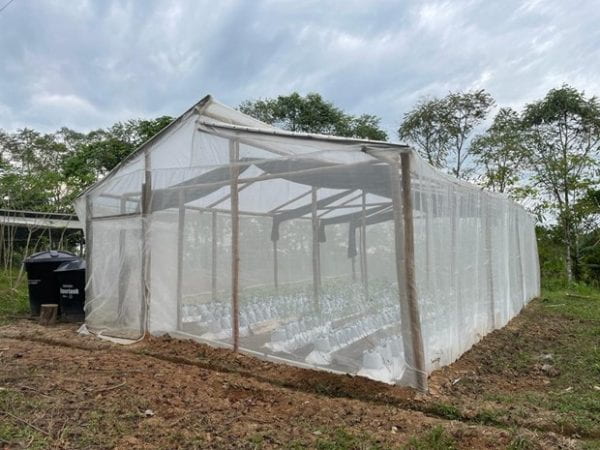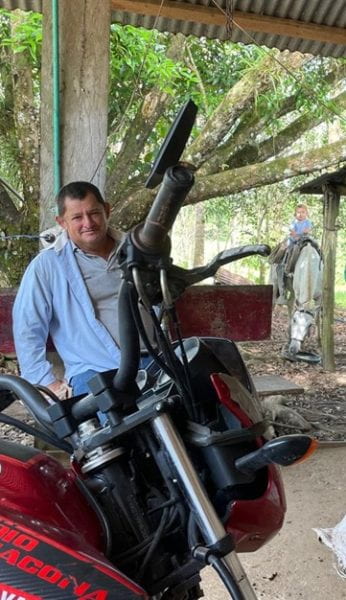Our Davis Project for Peace with International House has officially come to an end, but our work continues. We have learned and grown so much by spending these months with the people of Vereda Bocana Agua Caliente in Morelia, Colombia, and we couldn’t be happier with the progress that has been made. Thanks to the dedication of volunteers and leaders throughout the village council, Caqueta Chamber of Commerce, Colombian National Training Service, and the Primo grocery store chain, we have successfully implemented two hydroponic gardens, run entirely by solar power, that supply tomatoes, melons, and peppers to the local community. The village received incredible sustainability training from leading experts in the field, and the hydroponic technician continues to volunteer his time to the community as they master the art of soil-free gardening. The success of the hydroponic model in this rural farming community has ignited excitement in neighboring localities, local businesses, regional media, and Colombian universities. People have realized how simple and effective the hydroponic model can be, with this potential future for agricultural flourishment diminishing any past contention with neighbors or any thoughts of a return to illicit cultivation. It is clear to us from responses from people at all levels of society that the excitement about the future has washed away any embers of desire to return to the past conflicts. While it would be foolish to say that one community garden has changed the course of Colombia, it is with full confidence that we say that this is a step in the right direction.
We will continue working in the coming year to tell the story of this amazing village and seek additional funding for implementation of this model for other communities in need. We would like to give a very special thanks to Hector Valderrama, Ignacio Sanchez, Ediberto, and John. Without your dedication to the project, none of this would have been possible. Additionally, words can’t express how grateful we are to International House at the University of Chicago and to Davis Projects for Peace for allowing us this opportunity. You all made this happen.

Members of the village, including John (the man in the hat, who was gracious enough to let us sleep in his home on many a night), work diligently to support the growth of the tomatoes with twine.

Additional UChicago students made their way to the remote village in order to support us with the garden project, including Joe Quinn MPP ‘24 and Rimjhim Agrawal MPP ‘23.

Here is a full view of what one of the hydroponic gardens look like. The water tanks pictured on the left feed into hoses via a pump and timer every 30 minutes to hydrate the plants. The root systems of each plant are held within a bag of small stones, bleach, calcium powder, and other nutrients. The wood for the frame of the garden was collected from local trees.

Hector Valderrama, president of Vereda Bocana Agua Caliente, pictured here with his motorcycle in the foreground, and John’s 18-month old son, John Jr., pictured in the background on his noble steed.